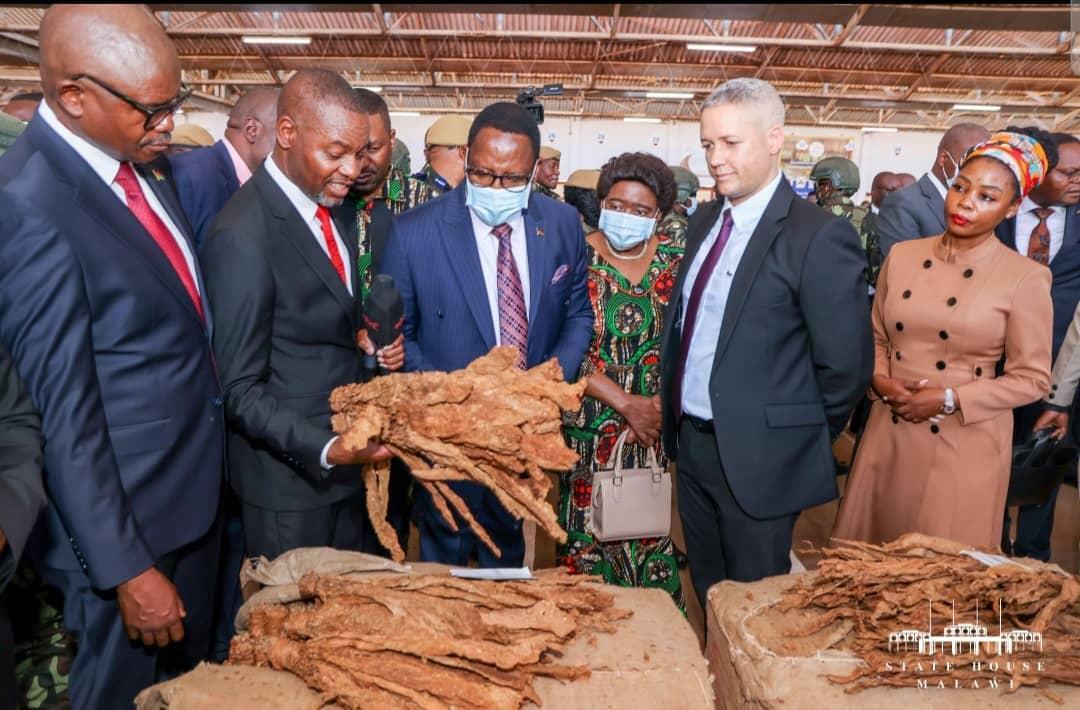Africa-Press – Malawi. President Dr. Lazarus McCarthy Chakwera has thrown down the gauntlet to buyers in Malawi’s tobacco industry, demanding a “win-win” value chain that puts farmers first and puts an end to exploitative practices.
Launching the 2024/25 tobacco marketing season, Chakwera didn’t mince words—urging for a new era of equity and accountability in an industry that has long been the backbone of Malawi’s economy, yet a burden for its growers.
“I’ve seen both the best and the worst,” said Chakwera in an exclusive interview shortly after the season’s official opening. “The bottom leaf may not be the best, but I’m encouraged to see that prices have gone up—some by more than 55 cents above the minimum. That’s a good start.”
But the President made it clear: Good is not enough.
“What I want is a win-win situation—where farmers celebrate, buyers are satisfied, and together as a nation, we create a tobacco industry that serves the interests of Malawians.”
His remarks come at a time when the country is grappling with acute foreign exchange shortages. The opening of this season’s market offers more than just business—it carries hope. A strong season could ease forex constraints and stabilize imports of essential commodities like fuel.
This year, 11 tobacco buying companies—including a new player, East Bridge—have lined up to compete for Malawi’s green gold. Other players include Nyasa Manufacturing Company, Limbe Leaf, JTI, Alliance One, Hail & Cotton, Premium Tobacco Malawi, African Tobacco Services, Associated Central African Limited, and Watergen.
Under President Chakwera’s leadership since 2020, the industry has undergone noticeable reforms. Unlike in previous regimes, pricing systems have been revamped, offering farmers better returns. This season’s first crop estimates project a production of 174 million kilograms, a significant rise from last year’s 133 million kilograms sold.
But with every new season comes the old question: Will farmers finally get their fair share?
President Chakwera has made his stance clear. Now, it’s up to the industry to rise to the occasion—or be called out for keeping the system rigged.
For More News And Analysis About Malawi Follow Africa-Press






